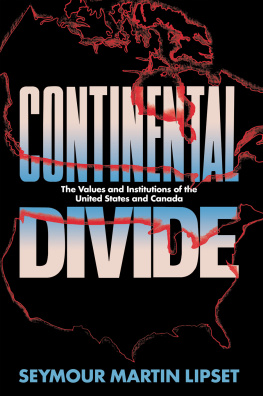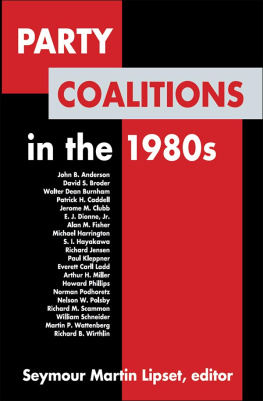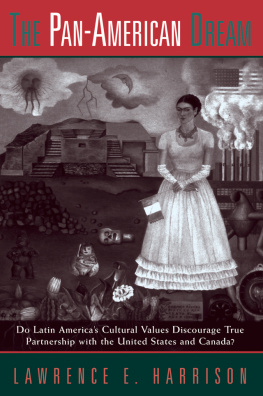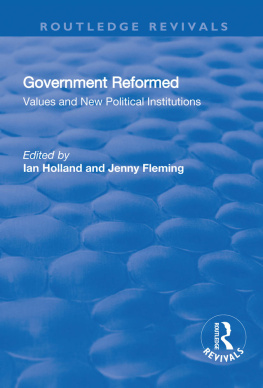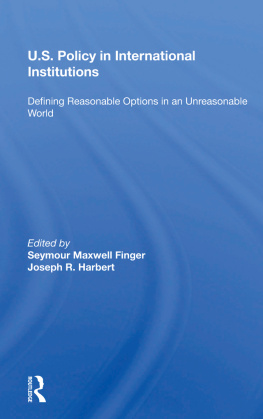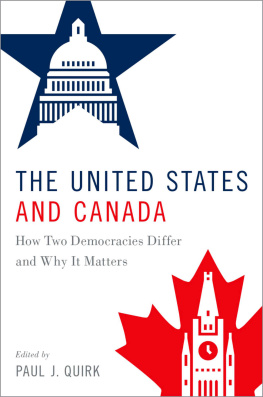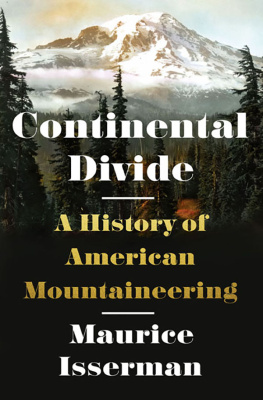To Max, Michael, and Sydnee,
for the future
First published in 1990 by
Routledge
An imprint of Routledge, Chapman and Hall, Inc.
270 Madison Ave,
New York NY 10016
Published in Great Britain by
Routledge
2 Park Square, Milton Park,
Abingdon, Oxon, OX14 4RN
Paperback published in 1991
Transferred to Digital Printing 2010
Copyright 1990, by Routledge, Chapman and Hall, Inc.
All rights reserved. No part of this book may be reprinted or reproduced or utilized in any form or by any electronic, mechanical or other means, now known or hereafter invented, including photocopying and recording, or in any information storage or retrieval system, without permission in writing from the publishers.
Library of Congress Cataloging in Publication Data
Lipset, Seymour Martin.
Continental divide: the values and institutions of the United States and Canada / Seymour Martin Lipset.
p. cm.
Includes bibliographical references.
1. United StatesCivilization. 2. CanadaCivilization. I. Title.
ISBN 0-415-90309-2
ISBN 0-415-90385-8 (pb)
E169.1.L545 1990
303.48'273071dc20
89-48660
British Library Cataloguing in Publication Data also available
Publisher's Note
The publisher has gone to great lengths to ensure the quality of this reprint but points out that some imperfections in the original may be apparent.
Acknowledgments, as John Le Carr notes, "can be as tedious as credits at the cinema," yet they are necessary since a serious scholarly work cannot or rather should not be conducted without drawing on the assistance of others. In this case, I am deeply indebted to many for assistance far beyond any call of duty or friendship. Some devoted many hours to making this a better book.
S. Delbert Clark, of the University of Toronto, introduced me to the comparative study of North America more than 40 years ago, when I was a young colleague of his; fortunately he is still able to correct my errors. Robert K. Merton, my teacher and friend at Columbia University and during the past year my colleague at the Russell Sage Foundation, introduced me to the exciting world of sociological analysis close to half a century ago, and in 1988-89 he spent endless hours going over this book, much as he had done with some of my earlier ones.
Friends and erstwhile colleagues, such as Daniel Bell, Rein-hard Bendix, Nathan Glazer, Earl Raab, and David Riesman, have taught me more than they realize about American society over the years. During my year at Russell Sage, Joel Silbey was quickly responsive to all my queries about American history. My emphasis on comparative analysis has benefited repeatedly from the critical commentaries of Larry Diamond, Mattei Dogan, Shmuel Eisenstadt, Alex Inkeles, and Juan Linz, and particularly from the incomparable genius of my friend and sometime collaborator, the late Stein Rokkan.
A number of Canadian scholars have suggested research leads, challenged my generalizations, or meticulously read over this manuscript. They include Robert Brym, James Curtis, David Flaherty, Richard Helmes-Hayes, Richard Lipsey, John Meisel, Mildred Schwartz, and Dennis Wrong. John Porter and Frank Underhill, both now deceased, played major roles in helping to formulate my basic conceptions of Canada and the United States. My introduction to and awareness of Canada's creative cultures owe much to Edith Fowke and Northrop Frye.
I have drawn here on unpublished public opinion data that I received from various polling agencies and academics. Among those to whom I am greatly indebted for such materials are Allan Gregg of Decima, Graham Huber and Peter Macintosh of the American and Canadian Gallup polls, Martin Goldfarb of Goldfarb Consultants of Toronto, Frank Lacy of the Contemporary Research Centre of Toronto, Gene Heaton of the Opinion Research Corporation of Princeton, Yves Corbeil of CROP of Montreal, Everett Ladd of the Roper Data Center of the University of Connecticut, Paul Sniderman of Stanford University, and Erik Olin Wright of the University of Wisconsin.
Three Stanford University students and assistants Sarah Corse, Katherine Teghtsoonian, and John Torres have worked with me over the years on my Canada-United States research; they made this book possible. Denise Darensbourg of the Russell Sage Foundation and Janet Shaw of the Hoover Institution put in more work on this book than anyone other than myself. Lenore d'Anjou did an excellent job of copy-editing, catching errors and infelicities of style. Barry Norris of the C.D. Howe Institute also helped greatly to correct the work. My morale was sustained by affection and support from Sydnee Guyer. I am deeply grateful.
Three research centers, the Hoover Institution of Stanford University, the C.D. Howe Institute, and the Russell Sage Foundation have supported my studies in this area. I am deeply grateful to their heads: W. Glenn Campbell, Maureen Farrow, and Eric Wanner. The C.D. Howe Institute commissioned the work as a short monograph. The Russell Sage Foundation provided me with a research year in which I could devote my time entirely to reworking and enlarging it as a book. The Hoover Institution has given extensively of its resources to facilitate my scholarship since 1975, without ever inquiring as to what, why, or how.
In addition to institutional backing, I have received much-appreciated and helpful grants for research on the United States and Canada from the William Donner Foundation and the Academic Office of the Canadian Department of External Affairs.
I have drawn on my previous articles in this area, and I am indebted to those who published them. I learned much from the writings of various Canadian sociologists, as the endnotes should indicate.
My last acknowledgment is the most important. Elsie Braun Lipset accompanied me as a raw, scared graduate student to Regina, Saskatchewan in 1945. She made my doctoral research possible and better. She lived with me for two years in Toronto, and for more than forty in other cities in the United States and elsewhere. There is no way to describe the importance of her life for me and many others. She was an American who deeply loved her country, but some of that feeling carried over to Canada. I am glad that she once was able to tell Pierre Trudeau what his country and its hospitality meant to us. She died on February 27, 1987. Some die too young, as John F. Kennedy noted. We miss her.
Seymour Martin Lipset
Russell Sage Foundation
June 1989
A publication of the Canadian-American Committee, sponsored by the C.D. Howe Institute (Canada) and the National Planning Association (U.S.A.)
The Canadian-American Committee was established in 1957 to study the broad range of factors affecting the relationship between Canada and the United States. Its members are business, labor, agricultural, and professional leaders from the private sector in the two countries. The Committee's two sponsoring organizations are nonprofit research institutions.

